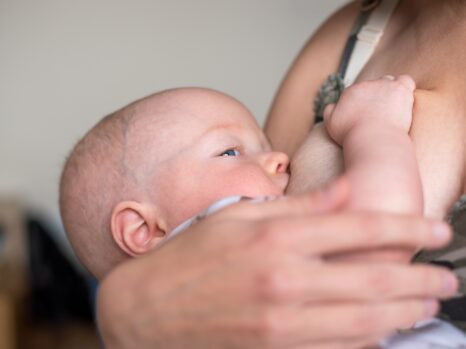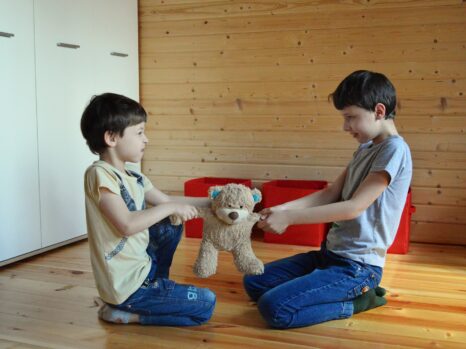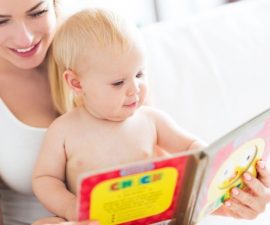Reflect on your most vivid childhood memories that have stayed with you over time. Was it the nurturing love of your grandmother who taught you the importance of hospitality? Or was it the guidance of a purposeful father who instilled a strong work ethic in you?
When we take a moment to revisit our past experiences, we quickly realize that our upbringing has significantly influenced the individuals we are today. If this holds, what kind of impact are we leaving on our own children? Picture them reading a blog post like this in their thirties or forties and being asked, “How did your parents shape the person you are today?” What would their response be? What would we want them to say?
It’s an unsettling question to ponder, but let’s take a deep breath and use this as an opportunity to learn about effective parenting styles (and ones to avoid) to improve our skills in raising our children. This is crucial because every parenting style has a unique and profound effect on our children. So, let’s have a conversation about it!
Understanding the Concept of parenting styles
Diane Baumrind first introduced the concept of parenting styles in the 1960s, after conducting a study on over 100 preschool-aged children. She recognized crucial aspects of parenting, such as disciplinary tactics, warmth and communication methods, and anticipations of maturity and authority.
Baumrind classified most parents into one of three distinct parenting styles: Authoritarian, Authoritative, and Permissive. Later, in 1983, researchers Maccoby and Martin added a fourth parenting style: Uninvolved.
In this article, we’ll explore the 4 types of parenting styles and how each one affects our children. This isn’t meant to make anyone feel bad, but rather to encourage us all to become better parents.
Authoritarian Parenting

The authoritarian parenting style is characterized by extreme strictness and rigidity. Imagine the powerful leaders you learned about in school and their speeches during wars – now picture them parenting with the same tone. It can be quite daunting.
Authoritarian parents tend to impose a lot of rules and structures on their children, which is important, but children also need the freedom to make mistakes, experience life, and learn about themselves. Unfortunately, growing up in an authoritarian environment can make it difficult to achieve these goals.
Typically, an authoritarian parent would use punishment to force a child to comply with their wishes and appear unemotional and cold. They have strict rules that must be followed, and the phrase “because I said so” is frequently used. Children who grow up with authoritarian parents may experience low self-esteem, difficulty socializing, and associate obedience with love.
This parenting style often stems from insecurity or a need for control, and when parents are tired and frustrated, they tend to revert to this style. However, it’s essential to be self-aware and avoid being a fully authoritarian parent, as it can be detrimental to a child’s development.
On the other hand, permissive parents avoid conflict at all costs and do not establish many rules in their household. They prefer to be their child’s friend rather than their parent and use rewards or bribes to get their children to comply. Permissive parents are very loving and warm towards their children, which is great, but the lack of rules, boundaries, and lessons about self-discipline can be detrimental to a child’s development.
Children who grow up with permissive parents may have poor social skills, a lack of discipline, motivation, and academic performance, as well as problems with authority. Additionally, teenagers of permissive parents are three times more likely to engage in underage drinking.
Love is undoubtedly important, but it should not come at the expense of rules and boundaries that every child needs to thrive.
Effects of Authoritarian Parenting on Children
Offspring of authoritarian parents are prone to comply with rules, but they have a greater likelihood of developing self-esteem difficulties.
Studies indicate that children of authoritarian parents may struggle with self-esteem issues and may not view their parents as legitimate authority figures. This can lead to a focus on anger towards their parents rather than their future goals and potentially result in hostile or aggressive behavior.
Additionally, due to the strictness of their upbringing, these children may be more prone to lying and engaging in risky behaviors such as smoking, skipping school, and underage drinking.
Consequently, they may experience depression and struggle academically. In light of this, SplashLearn provides various tutoring programs for children in Pre-K to Grade 5, intending to foster fearless learners.
Uninvolved Parenting

The most destructive parenting style for a child’s development is uninvolved parenting. Unlike authoritarian parents who overdo rules and boundaries, or permissive parents who join their children in breaking rules, uninvolved parents neglect their children and have no relationship with them.
Uninvolved parents are characterized by a lack of involvement and attention toward their children’s basic needs. These parents typically have minimal interaction with their children and are often unaware of their activities and well-being. As a result, their children lack guidance, nurturing, and parental attention, which can have long-lasting effects on their development.
This lack of attention is not always intentional and can result from various factors such as a lack of knowledge about child development, managing household or work problems, single parenting, or mental health and substance abuse issues.
Children who grow up with uninvolved parents may experience:
- Extreme difficulty forming relationships.
- Inability to interact effectively with other children.
Effects of Uninvolved Parenting on Children
Children who grow up with uninvolved parents often face behavioral issues and struggle with low self-esteem. They may also perform poorly in school, have difficulty controlling their emotions, and experience challenges in forming social relationships. Additionally, they may be susceptible to depression and display antisocial behavior.
Despite the challenges they face, these children often develop resilience and a sense of self-sufficiency due to their circumstances.
Authoritative Parenting

Authoritative parenting is widely considered to be the most effective parenting style, as it provides structure and balance without stifling the child’s development. Unlike authoritarian parenting, which can be overly strict and rigid, authoritative parenting strikes a healthy balance between discipline and flexibility.
Authoritative parents prioritize building a strong and positive relationship with their children. They establish clear and consistent rules while also considering their children’s opinions and explaining the reasoning behind the rules.
These parents devote their time and energy to preventing behavioral issues in their children, creating a supportive and nurturing environment. Praising and rewarding positive behavior is a common strategy used by authoritative parents.
They also maintain reasonable expectations for their children, making authoritative parenting a reasonable and effective approach according to experts.
What are the characteristics of authoritative parenting?
- Firm but not too harsh, with clear and reasonable rules.
- Consequences for misbehavior are designed to help children learn and improve, rather than simply punishing them.
- Children have a clear understanding of what is expected of them.
- There is open communication between parents and children, with a safe and supportive environment for discussing problems and concerns.
What are the benefits for children who grow up with authoritative parents?
- They are well-adjusted and successful members of society.
- They have strong communication skills and can interact well with others.
- They have high levels of self-esteem and self-discipline.
It’s important to remember that parenting style has a significant impact on a child’s development. While genetics play a role in a child’s temperament, experiences and environment are crucial factors in shaping who they become. So, parents should strive to provide a healthy and nurturing environment for their children to grow and thrive.
Effects of Authoritative Parenting on Children
Authoritative parenting has a positive impact on children’s mental health, decision-making ability, and risk assessment skills. Children of authoritative parents are encouraged to express their opinions and are more likely to become responsible adults.
Studies have shown that children raised by authoritative parents have higher levels of self-esteem and a better quality of life compared to those raised by other parenting styles. Adolescents with authoritative parents are less likely to engage in unhealthy sexual behaviors, substance abuse, or violence.
Permissive Parenting

Permissive parents are known for their affectionate and supportive nature. They establish rules but are usually flexible in enforcing them, believing that children learn better with minimal intervention.
They also tend to be forgiving, only intervening when they notice significant problems with their children.
While this parenting style is not recommended by experts, children of permissive parents often praise their upbringing and attribute their development as independent and decision-making adults to their parents.
These parents typically adopt an unconventional approach to parenting, treating their children more like friends than parents. They encourage their children to openly communicate and share their problems with them.
Permissive parenting is the opposite of authoritarian parenting, as it avoids conflicts and does not impose many rules in the household. These parents strive to be friends with their children rather than their authority figures and may use rewards or bribes to get them to comply.
While permissive parents are loving and warm towards their children, this affection, without structure, boundaries, and lessons in self-discipline, can hinder a child’s development.
A child raised by permissive parents may display poor social skills, lack discipline, motivation, and academic performance, and have problems with authority figures. Additionally, teenagers of permissive parents are three times more likely to engage in underage alcohol consumption.
While love is essential, it should not come at the expense of necessary rules and boundaries, which every child needs to develop healthily.
Effects of Permissive Parenting on Children
Research suggests that children raised by permissive parents tend to face academic difficulties and behavioral issues. They may also experience high levels of perceived stress, low self-esteem, and increased vulnerability to bullying.
Moreover, since permissive parents are often lax in enforcing rules, their children may be more susceptible to developing health problems such as obesity and dental cavities. Additionally, permissive parenting may increase the likelihood of teenage drinking.
Impact of parenting styles on child development
Parents play a significant role in the socialization of their children and their introduction to the world. They are not only primary role models for socially acceptable behavior but also for their value of relationships, which forms the foundation of childhood development.
The way parents’ control or allow their children to participate in their upbringing is equally important. The parent-child relationship shapes how children interact, perceive others, view authority figures, and express their emotions.
Children’s experiences of having their needs met or not affect how they treat the world around them. Empathy development in children depends on their exposure to it, and those raised with understanding will develop the ability to understand others.
On the other hand, children who experience their emotions as being trivial or not taken seriously by their parents may struggle to express their feelings or be considerate of others as adults.
Parenting styles are formulated categories that describe how parents choose to communicate, teach and model behaviors, and respond to their children’s needs. Some parenting styles are highly involved, while others are less so. Some require children to act without questioning, while others allow for mutual communication and negotiation.
Final Words
Experts have identified four parenting styles based on their observations, but it’s not always the case that you fit into only one category. There may be times when you see yourself as a permissive parent and other times as an authoritative parent. Although experts suggest that authoritative parenting is the best style, there is no need to worry if you identify more with other styles.
Parenting is an ongoing process, and with dedication and commitment, you can cultivate a positive relationship with your child. Over time, your child will grow into a responsible adult if you provide them with a supportive and healthy environment that is not overly controlling.
Frequently Asked Questions (FAQs)
- What is the most successful style of parenting?
According to experts, the authoritative parenting style is considered the most effective. Children raised with this style of parenting tend to be more self-assured and confident, have a greater likelihood of academic achievement, and demonstrate stronger problem-solving and social skills.
- Do parenting styles change?
Parenting styles may vary between children, and may also change depending on the parents’ available time and energy, as well as their concerns and circumstances.














